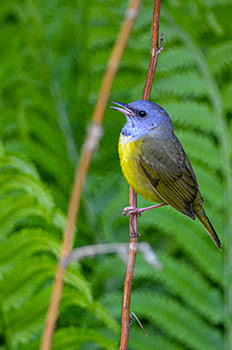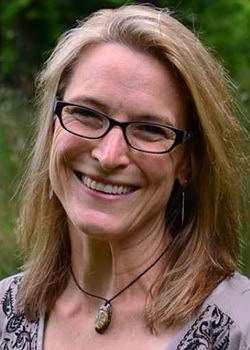

|
Contact: Gary Willis, 906 201-4602 or John Pepin, 906-226-1352
Wildlife Through Forestry series of special events continues
The Michigan Department of Natural Resources will continue its popular Wildlife Through Forestry series of special events May 9 with a bird migration forum being presented on the campus of Michigan Technological University in Houghton.
The purpose of this bird migration forum is to bring awareness of the plight of migratory bird populations, provide instruction direct from researchers so that the landowner/homeowner can take decisive action to enhance the habitat on their land and to provide a summary of bird migration and population numbers on the Keweenaw Peninsula.
The forum will be held from 6-9 p.m. EDT, Tuesday, May 9 at 135 Fisher Hall at Michigan Tech.
“More than half of the 836 U.S. species of migratory birds are in decline. Since 1970, U.S. songbirds have declined 30 percent which is almost 3 billion birds gone. Seventy-eight species are now considered as threatened while 14 are listed as endangered,” said Gary Willis, a DNR service forest in Baraga and organizer of the wildlife forum series. “Scientists are pointing to the success of waterfowl and waterbird recoveries over the same time that are the direct result of research and resulting conservation efforts to restore and protect wetlands. Swift conservation action can bring at risk birds back from the brink of extinction.”
The forum will feature three speakers: Dr. Jen Owen, Joseph Youngman and David Flaspohler.
Owen, who is an associate professor at Michigan State University, has extensively studied avian diseases and the vectors of transmission. She has conducted comparative research on the effects of invasive plant verses native plant communities on migrating birds.
Owen leads a MSU research team that is partnering with colleagues from the U.S. and four other countries to develop bio-surveillance plans for the U.S. Department of Defense to monitor and prevent infectious disease spread by migratory birds.
Her Forum presentation is entitled “Birds and Berries: The Importance of Native Fruit-Bearing Shrubs for Migrating Land Birds and the Challenges Migratory Birds Face as They Navigate a Changing Landscape.”
Since 1995, research associate Joseph Youngman has studied bird migration to and through the western Upper Peninsula. He has collected field data for numerous ornithological studies on the Keweenaw Peninsula and at Isle Royale National Park.
Through his extensive field work, Youngman has greatly contributed to baseline ornithological research efforts for the Lake States.
Youngman’s presentation is entitled: “Migration of Waterbirds, Raptors and Passerines Through the Keweenaw Peninsula.”
David Flaspohler is a professor at Michigan Tech. His research and teaching are focused on understanding how human activities influence animal and plant populations. He has studied migratory birds in the upper Midwest as well as Hawaii, Costa Rica, Mexico, Argentina, and Brazil.
“This event is the latest in a fascinating series of ‘Wildlife Through Forestry’ forums held in the western Upper Peninsula since 2017,” said John Pepin, DNR deputy public information officer. “These sessions link wildlife topics to the numerous ways habitat for birds and animals may be developed and enhanced for a range of species on private lands.”
Each of these sessions has included a presentation on an interesting and important wildlife-related topic, with additional information provided to private landowners on the value of a Forest Management Plan.
A panel of resource professionals will be on hand at the forum to discuss the development, preparation and implementation of Forest Stewardship Plans.
More than 150 professional foresters and 20 wildlife biologists develop Forest Stewardship Plans for forest landowners in Michigan.
For information about these plans or the Commercial Forest Program, contact Gary Willis, DNR Service Forester, 427 U.S. 41 North, Baraga, Michigan, 49908; 906-353-6651, ext. 207-0122 or willisg2@michigan.gov.
Conservation districts in many Michigan counties have foresters available for a free site visit to private landowner properties. They can discuss landowner wildlife habitat and forestry goals and help decide if there are financial assistance programs that can provide cost sharing for resource management plan preparation and implementation.